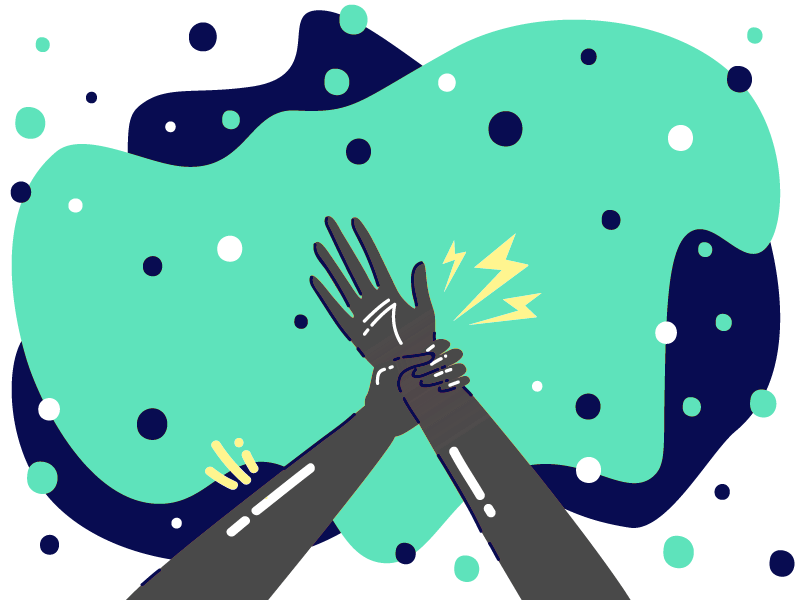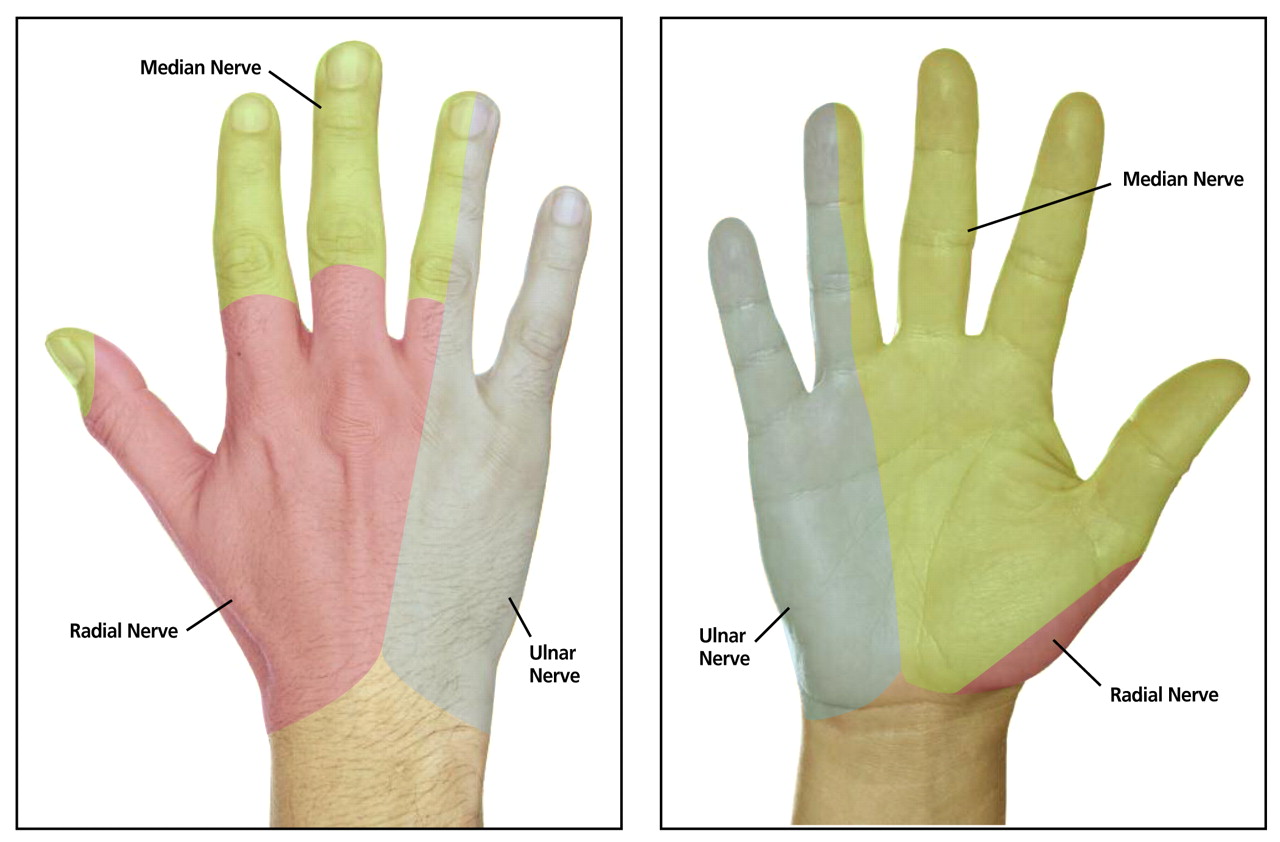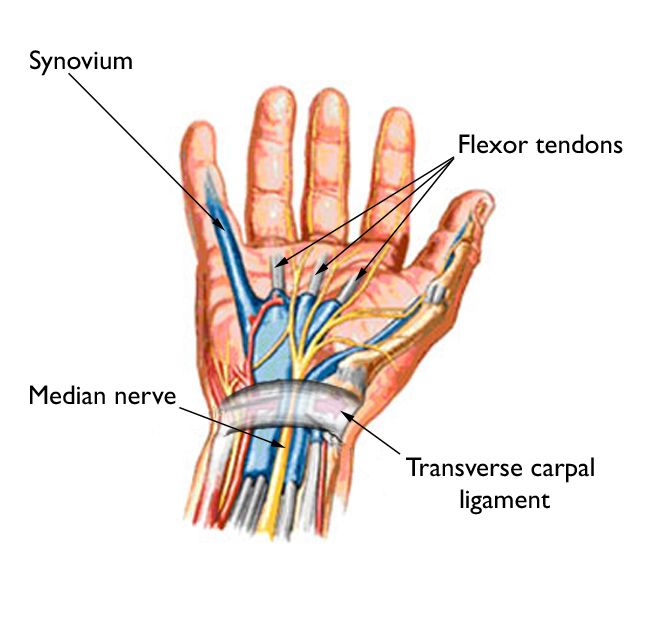
Carpal Tunnel Syndrome is a well-known condition that affects the arm and hand. Yet Cubital Tunnel Syndrome which similarly affects the arm and hand is much lesser known. Sometimes Carpal Tunnel is used as an umbrella term and can refer to Cubital Tunnel as well. But they are two separate conditions. As their symptoms and treatments are almost identical we will refer to both syndromes together in this article.
Carpal Tunnel Syndrome Explained
Carpal Tunnel Syndrome is when there is compression of the median nerve from the back of your neck down the outer arm to the wrist. As a result your thumb, index, middle and sometimes half of ring finer are affected. Simply put, it is a pinched nerve in the wrist.
This can occur for many reasons including genetics or conditions such as diabetes or rheumatoid arthritis. But a common cause is repetitive action and strain. Carpal Tunnel syndrome can become very painful and if the condition progresses it can cause nerve damage.
Cubital Tunnel Syndrome Explained
Cubital Tunnel Syndrome is compression of the ulna nerve in your elbow that runs down your inner arm and affects your ring finger and pinkie. Opposed to the pinched nerve in the wrist with Carpal Tunnel, Cubital Tunnel is a pinched nerve in your elbow.
Cubital Tunnel Syndrome can also develop from repetitive bending of the elbow and putting pressure on your elbow for extended periods of time. Another contributor to Cubital Tunnel can be how you sleep as a crooked arm/elbow is a common sleeping issue.

Signs and Symptoms of Carpal and Cubital Tunnel Syndrome
How Acupuncture and TCM Can Help
Although there is useful advice for managing early stages of Carpal or Cupital Tunnel Syndrome including stretches or modifying your work environment to be more ergonomic, sometimes the conditions become too debilitating. This is when acupuncture and TCM can step in to help.
Acupuncture for Carpal and Cubital Tunnel Syndrome
Acupuncture can help with the severe pain and numbness that is part of these conditions. Because posture plays a large part in how these conditions work (poor posture can cause the line of the spine to become crooked affecting circulation) acupuncture is useful as it relaxes muscles and slowly straightens the spine. Acupuncture will also assist in decreasing swelling and inflammation in your arm.
While treating the symptoms we can also address other common issues that arise with Carpal and Cubital Tunnel Syndromes. Neck pain, shoulder stiffness, headaches and sleep disturbances can all be helped with acupuncture and TCM.
TCM for Carpal and Cubital Tunnel Syndrome
TCM can help improve blood and energy circulation which will release some of the pressure on the affected nerves (median/ulna) and lessen your symptoms. At the same time TCM can address any underlying conditions that may be contributing to the problem such as arthritis, thyroid problems, hormonal issues or any other energy imbalances. This will help maintain your results long term.

General Tips
Another way we assist you is by guiding you in lifestyle changes to improve your health. Our advice will be catered to you as an individual and your needs.
If you notice a tingle every now or then in your arm, perhaps after reading a physical book or leaning on your arm for a while, here are some tips that might help the function of your joints and nerves.
Acupuncture and TCM can help you whether you have Carpal Tunnel Syndrome or Cubital Tunnel Syndrome. It also does not matter what extent of the condition you are in – the sooner you get help the better.

Leave a Reply